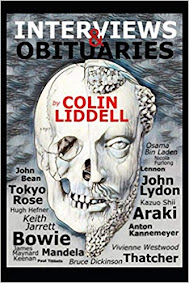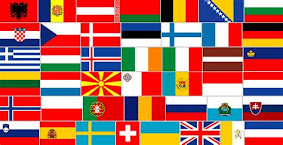The Labour campaign, always lacklustre, has become demob-happy since Gordon Brown's gaffe of last week, when he was recorded describing a lifelong Labour supporter in Rochdale as a "bigoted woman." Three government ministers have now urged Labour supporters in Conservative/Liberal Democrat marginal seats to vote Liberal Democrat rather than Labour to keep out the Conservatives, and one Labour candidate has even described Gordon Brown as "the worst prime minister in the history of Britain."
The Liberal Democrats, too, have faltered slightly, as the more rational 'floating voters' forget Nick Clegg's TV thespian skills and look more closely at Lib Dem policies, which include such turn-offs as amnesty for illegal immigrants and joining the Euro.
The central question is whether a Tory victory will make any real difference. Back in March, a Times editorial said that it was obvious David Cameron wanted to be prime minister -- but not why. This question remains unanswered. Despite deep public anger about the recession, immigration and political corruption, the party's campaign has been vacuous in the extreme, centering on mindless slogans like "We can't go on like this" and "Vote for change."
The nearest thing to a central idea has been the concept of a "Big Society", promoted by Philip Blond's Res Publica think tank - a society where government hands over more powers to individuals and civic groups. With its Burkean connotations, this concept is admirable (it has incidentally been attacked by the Independent because of its closeness to what it sees as the dangerous thinking of G K Chesterton and Hilaire Belloc), but it has not ignited the party's campaign, which party insiders are describing as "the most inept in living memory." Even if the Tories win convincingly, the "Big Society" is likely to be an early casualty, because there will be much more urgent things to be done, most notably sorting out the public finances.
There have also been plausible rumours that a victorious Conservative Party will seek to rejoin the European People's Party, which it quit in 2009 in response to internal Eurosceptic pressure. Since then, the Tories in Europe have been sidelined by France and Germany, and attacked in the press because of the associations of their new European allies (their Polish allies are allegedly "anti-Semitic" and "homophobic", while their Latvian sister-party has historic links with Waffen SS veterans). Cameron has already wriggled out of a 2007 "cast-iron guarantee" on offering a referendum "on any EU treaty that emerges from these negotiations" (the EU Constitutional Treaty) on the grounds that the Lisbon Treaty which eventually emerged was substantively different (it wasn't).
Immigration came up again and again during this campaign as a subject on which the public felt very strongly (second only to the economy), yet the Tories declined to capitalize on this. All Cameron has promised is that immigration will be cut to tens of thousands rather than hundreds of thousands. Yet approximately 80% of present immigration comes via other EU countries, whose nationals Britain is not permitted to exclude under European treaties, so without leaving the EU it is difficult to see how this could be done. Nor has Cameron mentioned recently an earlier promise to rescind Labour's Human Rights Act, which is increasingly used to assert the "rights" of illegal immigrants and "asylum-seekers." There are a few Tories, notably Boris Johnson, who are openly in favour of amnesties for illegals -- and whatever both parties say, both Labour and the Conservatives have gone along with what the Guardian has called "at least four back-door amnesties over the last 20 years." The Conservatives also support Turkish EU membership.
The Tories will make a better job of tackling the public finances than would the other two parties (although they perversely ring-fenced foreign aid, which will be circa £9.1 billion in 2010/11, which one would have thought would have been amongst the first targets), but on anything that pertains to national identity the Conservatives simply cannot be relied upon (although there are still excellent MPs and peers) - and they will be even less trustworthy if there is the hung parliament some are predicting, and they need to collaborate with the Liberal Democrats, SNP or Plaid Cymru.
Beyond the Tories, there exist three other notable groups which are, or claim to be, concerned about national identity. The most important is UKIP, under its new leader Lord Pearson of Rannoch (a former Tory life-peer who is most famous for inviting Geert Wilders to show Fitna in the House of Lords, and is incidentally the largest private landowner in Scotland) which has 12 MEPs but as yet no representation at Westminster. The party has long been a single-issue party (withdrawal from the EU), which has hindered it in local and Westminster elections, but this time it has a made a major effort to broaden its appeal with a rightwing populist manifesto. New policies include a five year moratorium on immigration and banning the burqa.
They are standing over 500 candidates in this election, almost all of them no-hopers, aiming at best to deprive pro-EU candidates of sufficient votes to make a difference to the result (in practice, most UKIP votes come from former Conservative supporters) and to accumulate some good runner-up results on which they can build. Their main effort is focused on the safe Tory sear of Buckingham, whose incumbent MP John Bercow is the Speaker of the House of Commons. Theoretically, the Speaker is supposed to be above party politics, so there is an informal agreement that the major parties do not contest the Speaker's seat. But smaller parties feel no such compunction. UKIP's charismatic candidate Nigel Farage clearly feels there is an outside chance that he can pull off an upset - partly because of the generic public disenchantment with mainstream politicians, and partly because Bercow is so disliked within his own party (he is a former Monday Club hardliner who has very conveniently become a born-again leftist) that many local Tories are campaigning for Farage (David Cameron even had to issue a formal warning to Buckingham activists). Farage is unlikely to prevail even in these circumstances, but Buckingham will be one of the more interesting sideshows of 6 May. (Bercow's tenure as Speaker may in any case be as foreshortened as he is in person; apparently, there will be a Tory attempt to depose him if they win.)
The English Democrats, led by solicitor Robin Tilbrook, are standing 108 candidates for Westminster (the party's chief policy is for the establishment of an English Parliament, with powers similar to those enjoyed by the Scottish Parliament), but this is really more a consciousness-raising exercise. English nationalism, although on the rise, has not yet come of age, and the English Democrats are still a small and impecunious party. Their only prominent elected representative is the Mayor of Doncaster, Peter Davies, elected surprisingly last year on an anti-political correctness and anti-establishment ticket, entering office in a blaze of headlines by cutting his own salary and promising to cut municipal funding for a "Gay Pride" parade. Unluckily for him, the council of which he is now the public face is amongst the country's worst. For his party, a lot may depend on how Mr Davies can handle the council's endemic incompetence and extravagance.
Finally, the British National Party (BNP) is fielding 300+ candidates for the Westminster elections. Theirs has been a problematic campaign, dogged by problems over party accounts and the uncovering of a planned coup, resulting in the expulsion of the party's head of publicity. On top of these distractions, there has also been the usual panic attacks from the other parties, which have thrown everything they can against the BNP. Yet such tactics may have the adverse effect, by making many disgruntled people feel sympathy for a group so hated and feared by the elite.
Media eyes are on two seats - Stoke Central, being contested by deputy leader Simon Darby, and Barking & Dagenham in east London, being contested by party leader and MEP Nick Griffin. For decades amongst the safest of Labour seats, in 2006 the BNP came from nowhere to become the official opposition on Barking & Dagenham Borough Council (presently 11 councillors out of 51). Although Griffin has an outside chance against the incumbent Labour MP Margaret Hodge, the party's chief aim is to wrest control of the council from Labour -- which would be their first, and would give them control of an annual budget of £200 million. Party strategists have calculated that simply scrapping all the council's politically correct schemes would allow them to lower council tax by around 20% virtually overnight -- a move which would make them rather more acceptable even to non-sympathisers. However, the BNP was able to find candidates for only 34 of the 51 seats in the borough, so its chances of winning the 26 required look slender. It will also be interesting to observe BNP results in some neighbouring boroughs, notably Redbridge, where they already have representation -- although in London as a whole the party is weak.
Stoke is a depressed industrial town in the West Midlands, where the BNP has eight town councillors, making them the second-largest group (Labour has 14). A split will hamper Simon Darby's chances (a former BNP town councillor is standing against him for Westminster), but as in Barking, the party's chief aim is to embed themselves deeper within local government. However, because of the aforementioned split, they are likely to go backwards in Stoke. Other results to watch will be in northwestern constituencies such as Oldham and Burnley in Lancashire - although the BNP increasingly has the potential to pick up seats almost anywhere in England. Even where the BNP does not win, there will no doubt be some noteworthy second and third places at both parliamentary and local level.
The House of Commons that emerges from the confusion of 6 May will be a very different place. No doubt the major parties will once again strive to ignore the toxic "national question." But immigration has played such a major role in this election that business-as-usual will now be much more difficult. Immigration has at last become un-ignorable, and it is very likely that a serious immigration reform caucus will at last emerge amongst the Conservatives -- especially if the UKIP, BNP and English Democrats between them put up a respectable showing. There are now opportunities to make serious arguments and for politicians to profit electorally by being immigration-sceptics, for almost the first time since Enoch Powell dropped the ball in 1968.
































No comments:
Post a Comment
Your comment will appear after it has been checked for spam, trolling, and hate speech.